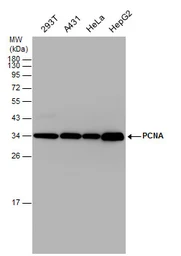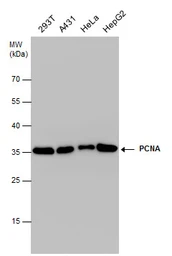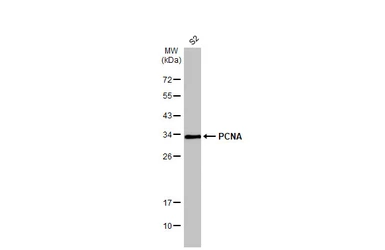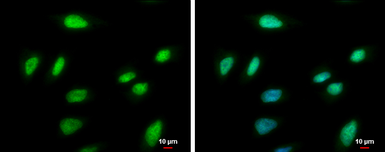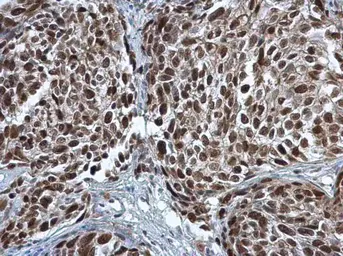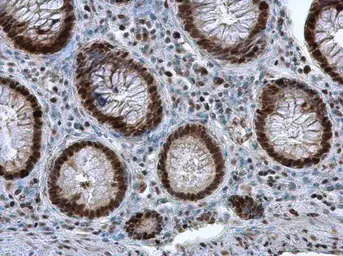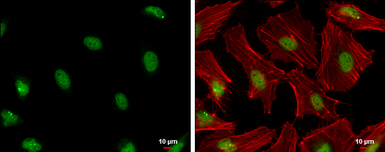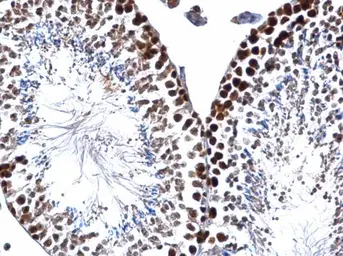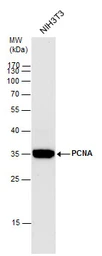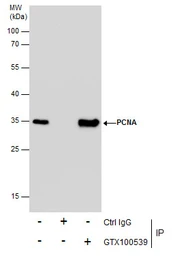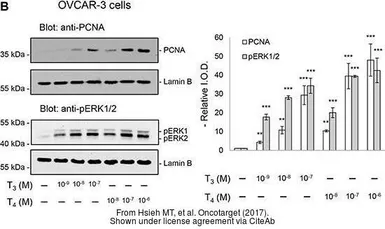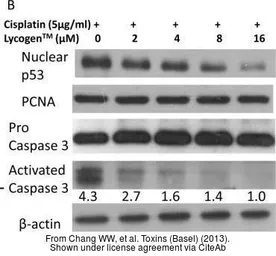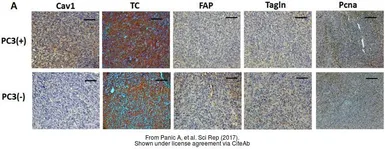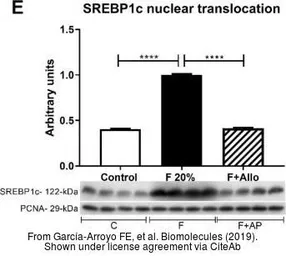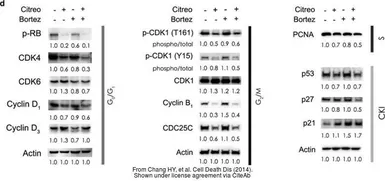PCNA antibody
Cat. No. GTX100539
Cat. No. GTX100539
-
HostRabbit
-
ClonalityPolyclonal
-
IsotypeIgG
-
ApplicationsWB ICC/IF IHC-P IP
-
ReactivityHuman, Mouse, Rat, Drosophila, Golden Syrian Hamster
Summary
PCNA antibody recognizes the proliferating cell nuclear antigen (PCNA), a cofactor of DNA polymerase delta with a predicted molecular weight of 29 kDa. PCNA is important for DNA synthesis, repair, and epigenetic modifications, and also serves as an organelle marker of the nucleus. PCNA antibody can be used for distinguishing between early, middle, and late S-phase of the cell cycle as well as grading of different neoplasms.


